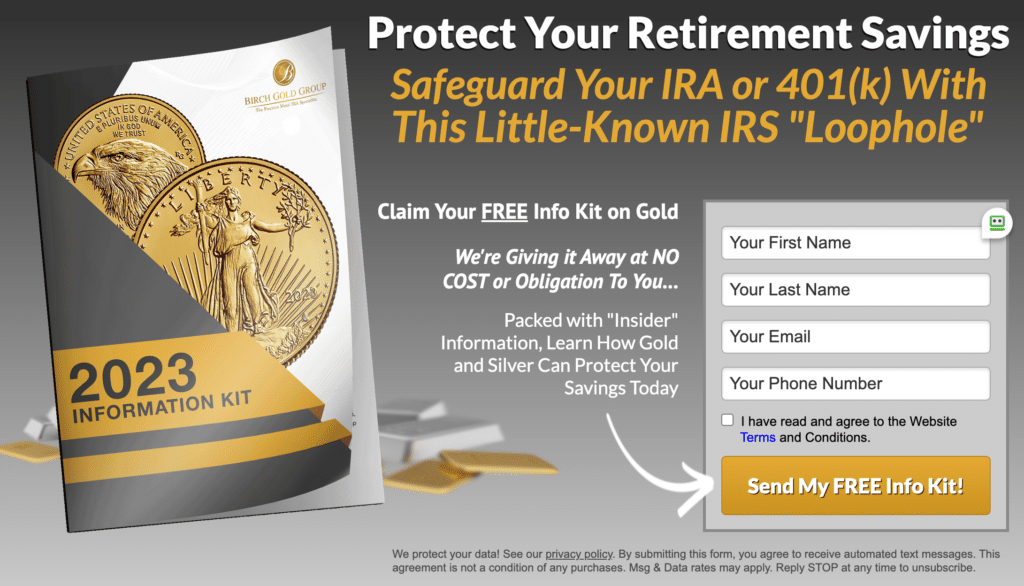Are you tired of the daily grind and dreaming of retiring early to achieve a better work-life balance? Achieving early retirement requires careful planning, discipline, and flexibility. In this comprehensive guide, we will provide you with a step-by-step process to help you achieve early retirement and live the life that you desire.
Achieving Work-Life Balance and Retiring Early: A Guide
By reading this article, you will learn:
– How to assess your current financial situation and create retirement savings goals.
– Tips for increasing your savings rate, investing wisely, and creating passive sources of income.
– How to prioritize health and wellness, be flexible with your plans, and seek professional advice.
Assess Your Current Financial Situation
Assessing your current financial situation is the first step to achieving early retirement. Here are some things to do:
Calculate Your Net Worth
Calculate your net worth by adding up all your assets (savings, investments, and property) and subtracting your liabilities (credit card debt, student loans, and mortgages). This will give you a better understanding of your current financial position and how much you need to save to retire early.
Determine Your Monthly Expenses and Income
Determine your monthly expenses and income to identify areas where you can cut back on expenses and increase your savings rate. Add up all your bills, including rent or mortgage payments, utilities, food, transportation, and other expenses. Then, subtract this amount from your monthly income to determine your disposable income.
Assess Your Debt-to-Income Ratio
Assess your debt-to-income ratio. If it's over 36%, you may need to take steps to reduce your debt. Calculate your monthly debt payments and divide them by your monthly income.
Determine Your Retirement Savings Goals
Determine your retirement savings goals by considering your desired retirement lifestyle and estimating your retirement expenses. Use a retirement calculator to determine how much you need to save to achieve your goals.
| Tips for Cutting Back on Expenses | Ways to Boost Your Income | Strategies for Saving More Money |
|---|---|---|
| Cook at home instead of eating out | Negotiate a raise at work | Set up automatic savings transfers to a separate account |
| Cancel subscriptions and memberships you don't use | Look for higher-paying job opportunities | Use a budgeting app to track your expenses |
| Use public transportation instead of owning a car | Start a side hustle or freelance business | Make saving a priority over spending |
| Shop for groceries in bulk | Rent out a spare room on Airbnb | Look for ways to reduce recurring expenses, such as insurance and phone plans |
| Reduce your energy consumption by turning off lights and unplugging electronics when not in use | Sell items you no longer need or use | Consider refinancing high-interest debt to lower your monthly payments |
Increase Your Savings Rate
To retire early, you need to increase your savings rate. Here are some tips to help you do that:
Tips for Cutting Back on Expenses
- Cook at home instead of eating out
- Cancel subscriptions and memberships you don't use
- Use public transportation instead of owning a car
- Shop for groceries in bulk
- Reduce your energy consumption by turning off lights and unplugging electronics when not in use
Ways to Boost Your Income
- Negotiate a raise at work
- Look for higher-paying job opportunities
- Start a side hustle or freelance business
- Rent out a spare room on Airbnb
- Sell items you no longer need or use
Strategies for Saving More Money
- Set up automatic savings transfers to a separate account
- Use a budgeting app to track your expenses
- Make saving a priority over spending
- Look for ways to reduce recurring expenses, such as insurance and phone plans
- Consider refinancing high-interest debt to lower your monthly payments
Invest Wisely
Investing wisely is an essential part of achieving early retirement. Here's how to do it:
Basics of Investing
Investing involves putting your money into assets that can grow in value over time. There are many types of investments, including stocks, bonds, real estate, and mutual funds. Before investing, it is important to understand the risks and potential rewards of each investment type.
Types of Investments to Consider
- Stocks: Stocks represent ownership in a company and can provide long-term growth potential.
- Bonds: Bonds are loans that you make to companies or governments in exchange for a fixed interest rate.
- Real estate: Real estate investments can provide rental income and appreciation in value over time.
- Mutual funds: Mutual funds are collections of stocks, bonds, and other assets that are managed by professional fund managers.
How to Diversify Your Portfolio
Diversification is the practice of spreading your investments across multiple asset classes to reduce risk. By diversifying your portfolio, you can reduce the impact of market volatility on your investments.
How to Manage Risk
Investing always involves a certain level of risk. To manage your risk, it is important to diversify your portfolio, invest in different types of assets, and have a long-term investment strategy. However, it's essential to keep in mind that investing comes with risks, such as market volatility, inflation, and the possibility of losing money.
Create Passive Sources of Income
Creating passive sources of income can help you achieve financial independence and retire early. Here are some passive income ideas to consider:
Rental Properties
Owning rental properties can provide a steady stream of passive income. However, it also involves managing tenants and property maintenance.
Dividend-Paying Stocks
Dividend-paying stocks can provide regular income without requiring you to sell your investments. Some stocks pay dividends quarterly or annually.
Peer-to-Peer Lending
Peer-to-peer lending involves providing loans to individuals or businesses through an online platform. You can earn interest on your loans and receive regular payments.
Starting a Business
Starting a business can provide a source of passive income if it is successful. However, it also involves a significant amount of time and effort to get started.
Create a Retirement Budget
Creating a retirement budget will help you estimate your expenses and plan for your retirement. Here are some factors to consider when creating a retirement budget:
How to Estimate Your Retirement Expenses
Estimating your retirement expenses involves considering your desired retirement lifestyle, healthcare costs, and inflation. Be realistic about your expenses and plan for unexpected events.
How to Plan for Healthcare Costs
Healthcare costs are a significant expense in retirement. Plan for these costs and consider purchasing long-term care insurance.
How to Account for Inflation
Inflation can erode the value of your savings over time. Account for inflation when creating your retirement budget.
Consider Part-Time Work or Freelancing
Working part-time or freelancing can provide a source of income in retirement and help you stay engaged in your field. Here are some benefits of working part-time or freelancing:
Benefits of Working Part-Time
- Provides a source of income
- Keeps you engaged in your field
- Can provide social interaction
How to Find Part-Time Work or Freelance Opportunities
Many online platforms connect freelancers with clients. You can also consider networking with former colleagues or joining professional organizations to find part-time work.
How to Balance Work and Retirement
Balance work and retirement to avoid burnout. Consider setting boundaries and having clear expectations with your employer or clients.
Prioritize Health and Wellness
Staying healthy and active in retirement is essential for maintaining a high quality of life. Here are some tips for prioritizing health and wellness:
Importance of Staying Healthy in Retirement
Staying healthy can help you maintain your independence and enjoy your retirement to the fullest.
Tips for Staying Active and Engaged
- Exercise regularly
- Volunteer in your community
- Pursue hobbies and interests
- Travel
- Spend time with loved ones
How to Maintain Strong Relationships
Maintaining strong relationships with friends and family can help you stay socially connected and avoid loneliness in retirement.
Be Flexible with Your Plans
It is important to remain flexible in your retirement plans. Unexpected events can occur, and your needs and goals may change over time. Here are some tips for remaining flexible:
Why It's Important to Remain Flexible
Remaining flexible can help you adapt to changing circumstances and avoid financial hardship.
How to Adjust Your Plans When Necessary
Adjusting your plans may involve changing your savings rate, adjusting your budget, or revising your retirement timeline.
Personal Story: Prioritizing Health and Wellness
As a former workaholic, I never thought much about my health and wellness until I hit a breaking point. My stress levels were through the roof, and I was constantly exhausted. I knew I needed to make a change, so I started prioritizing my health and wellness.
I began by incorporating exercise into my daily routine, starting with just a 15-minute walk each day. As I started feeling better, I gradually increased the intensity and duration of my workouts. I also started paying more attention to my diet, making sure to eat plenty of fruits and vegetables and cutting back on processed foods.
As I started taking better care of myself, I noticed a significant improvement in my overall well-being. I had more energy, felt less stressed, and was able to focus better at work. I also started making time for hobbies and activities that I enjoyed, like playing music and spending time outdoors.
Now that I'm on the path to early retirement, I know that prioritizing my health and wellness will be key to enjoying my retirement years. I plan to continue exercising, eating well, and staying engaged in activities that bring me joy and fulfillment. By taking care of myself now, I know I'll be able to enjoy a happy, healthy retirement.
Planning for Unexpected Events
Plan for unexpected events, such as health issues or market downturns. Consider having an emergency fund and insurance to protect your finances.
Seek Professional Advice
Working with a financial advisor or retirement planner can help you create a personalized retirement plan and achieve your goals. Here are some benefits of working with an advisor:
Benefits of Working with a Financial Advisor or Retirement Planner
- Provides personalized advice
- Helps you create a retirement plan
- Offers guidance on investing and managing your finances
How to Find a Reputable Advisor
When looking for a financial advisor, consider their qualifications, experience, and fees. Look for advisors who have a fiduciary duty to act in your best interest.
What to Expect from Working with an Advisor
Working with a financial advisor involves creating a personalized retirement plan and receiving ongoing guidance on managing your finances.
Stay Disciplined and Focused
Achieving early retirement requires discipline and focus. Here are some tips for staying on track:
Importance of Staying Disciplined
Staying disciplined can help you stay motivated and achieve your goals.
How to Stay Motivated
Set clear goals and track your progress to stay motivated and focused.
How to Track Your Progress
Regularly review your financial situation and retirement plan to ensure you are on track to achieve your goals.
Risks Associated with Investments
Investing always involves risks, such as market volatility, inflation, and the possibility of losing money. It's essential to understand these risks before investing and to diversify your portfolio to reduce your exposure to any one type of investment. Additionally, it's important to have a long-term investment strategy and to avoid making impulsive investment decisions based on short-term market fluctuations.
Personal Anecdotes
Hearing personal anecdotes of individuals who have successfully achieved early retirement can be inspiring and motivating. For example, you could read about individuals who saved aggressively, cut back on expenses, and invested wisely to retire early. These stories can provide insight into the challenges and rewards of early retirement and help you stay motivated on your own journey.
Conclusion
Achieving early retirement and a better work-life balance requires careful planning, discipline, and flexibility. By following the steps outlined in this guide, you can create a personalized retirement plan and achieve the life you desire.
Remember to regularly review your plan and adjust it as necessary to ensure you are on track to achieve your goals. With patience, perseverance, and a willingness to take calculated risks, you can retire early and live the life you have always dreamed of.
William is a financial expert with over 15 years of experience in the industry. She holds a Master's degree in Finance from [University Name] and has worked with some of the top financial institutions in the country. Her passion for helping people achieve financial independence and retire early led her to write this article. William believes that everyone can achieve work-life balance and retire early with the right mindset and strategies.
As a financial advisor, William has helped numerous clients achieve their financial goals through sound investment strategies and comprehensive retirement planning. She has also contributed to several financial publications and has been featured in major news outlets for her expertise.
William understands the importance of staying up-to-date with the latest research and trends in the financial industry. She has conducted extensive research on retirement planning, investments, and passive income sources, and has incorporated her findings into this article.
With her extensive knowledge and experience, William provides practical tips and advice on how to achieve work-life balance, save more money, and create passive sources of income. She also emphasizes the importance of staying healthy, maintaining strong relationships, and being flexible with plans to achieve long-term financial success.




